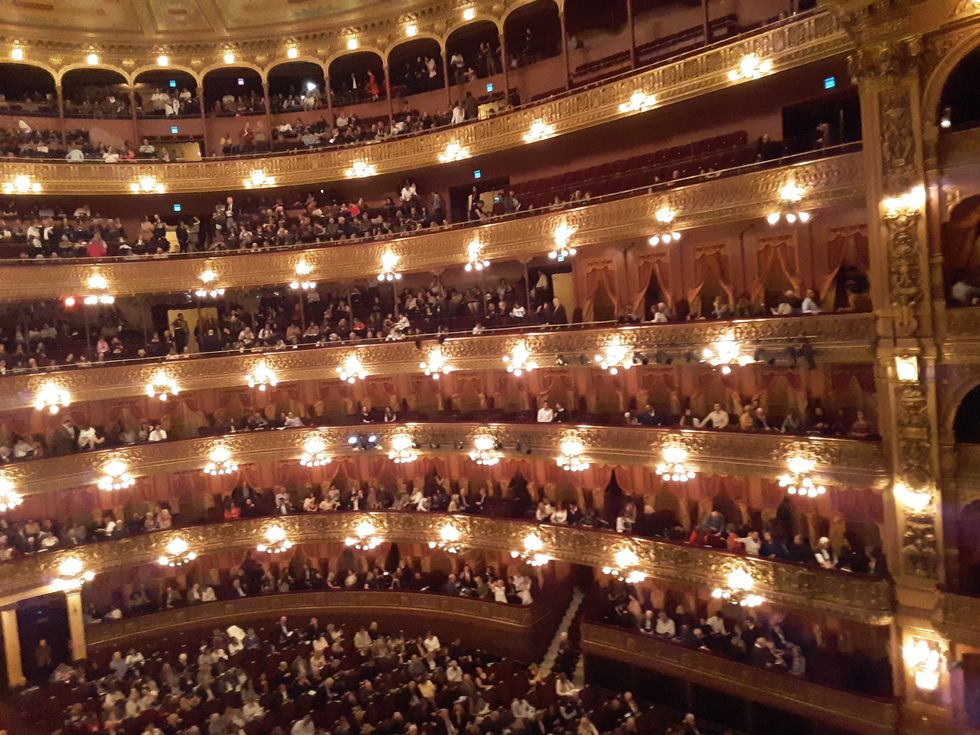I read Tennessee Williams's classic 1947 play in my senior year of high school. I liked it and went on to watch the 1951 movie version. The play had already impacted me through its beautiful prose and dramatic story; the movie stuck with me because Vivien Leigh's portrayal therein of the protagonist's descent in insanity is disturbing, unforgettable, and a great work of art.
The thing about "A Streetcar Named Desire", a great American play if there ever was one, is that it is a great piece of dramatic tragedy. In a nutshell, it's about a highly flawed person (Blanche DuBois) who still displays a great capacity for seeing life itself as poetry. This is why the play is heartbreaking. Blanche might annoy us at first, but if we do not (internally or externally) weep for her at the end, we have no heart.
Tragedy and life are inseverable. I think that I'm not being too pessimistic if I say that, if we look at the word in the sense of great theatre (think of Sophocles and Shakespeare), we can say that that statement encapsulates the most redeeming part of our existence on this earth: our sorrows (potentially) have the contours of a great work of art. There's a bit (or a lot) of Blanche in all of us, regardless of the specific circumstances of our lives, and while, God willing, you and I will not end up like her, it is a great thing to take note of her endless capacity for receiving beauty in the world around her. Towards the end of the play, Blanche, now definitely insane, has a beautiful line about hoping to die on the sea. The movie omits this. Perhaps Vivien Leigh's portrayal went so far in the direction of portraying Blanche's mental collapse (for a good sample, watch this video from 2:14-2:48) that including it would have seemed anticlimactic. The opera, on the other hand, includes the line and converts it into this beautiful aria.
I walked into the theatre on that Friday perfectly conscious of the horror of Blanche's story. I walked out still fully conscious of that, but with the added full consciousness of the beauty of her story. I suppose that opera does that, blending the epitome of human vocal art with stories of terrible things happening.
I'd never been to an opera before I went to the performance of "A Streetcar Named Desire" at the Teatro Colón in Buenos Aires. It's great, as a college student in NYC, to be able to say when I go back in the fall that my first time at an opera was in Argentina. (I certainly hope to go to an opera at the Metropolitan Opera before graduating.) I do not consider it insignificant, what with the need for brotherhood among the countries of this hemisphere and the world, that I went to see a quintessentially American work of art, in an adaptation by a composer born in Germany, in South America, with a leading lady and director from Ireland.
Blanche is a woman bred on the last lingering aristocratic ideals of the antebellum South, traumatized by a sense of guilt in the suicide of her homosexual husband, haunted by the promiscuity she uses as a way to grasp at emotional solace and by the deaths of multiple relatives, and raped by her brother-in-law. I do not presume to comment on life experiences I do not have personal familiarity with, nor do I wish to make generalizations about mental conditions based on their dramatization. I do think, however, that Blanche, in a sense, speaks for all of us, when she goes on with the arduous task of living, and, amidst the horrors she experiences, refuses to let go of a desire to see life as beautiful.
The opera's libretto is very faithful to the play's text, but at one point it includes a very interesting interpolation. A Mexican woman is selling "flowers for the dead" (that much is in the play); in the opera, the woman adds an extended comment about there being flowers in hell. This is, like Blanche's speech about dying on the sea, pretty much an encapsulation of the whole play: Death, omnipresent, becomes something itself very lovely.
When the evils of life confront us and overwhelm, may we be moved by such a terrible and wonderful sentiment.






 The minimum wage is not a living wage.
StableDiffusion
The minimum wage is not a living wage.
StableDiffusion
 influential nations
StableDiffusion
influential nations
StableDiffusion












